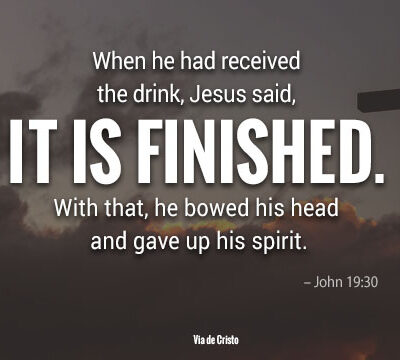No slave can serve two masters; for a slave will either hate the one and love the other, or be devoted to the one and despise the other. You cannot serve God and wealth.
Luke 16:13
In today’s gospel Jesus says we can serve either God or Mammon, but not both. Mammon serves as an image for the gaining of wealth, the “most common god on earth,” according to Martin Luther (Large Catechism, Explanation of the First Commandment). Charging interest on loans was forbidden in the Bible because it exploited the poor, those who were most vulnerable.
This statement of Jesus came as a culminating remark to a parable he told about a rich man and his steward/debt collector and somehow I think he had put both the rich man and his debt collector into the same class with this concluding remark. The rich man along with his steward, were both exploiting desperate peasants by charging them more than what they should have owed.
As I think about what Jesus challenges us to do in choosing who we will serve, God or wealth, it forces me to ask questions about how we practice loving our neighbor in economic relationships. There is no doubt, at least in my mind, that we live in the midst of unjust financial structures in our world today, and Jesus repeatedly warns that we cannot be disciples while accumulating wealth at the expense of the poor. Luther’s warning about Mammon 500 years ago and Jesus warning about letting wealth become our Master over 2000 years ago is still a valid warning for us today. It is true that money and possessions are indeed the most common idol on earth today.
Like the manager, we have nothing that really belongs to us; we are stewards of God’s abundance. And yet we often think that the paycheck we receive is ours, not God’s. God is much more giving and compassionate than any human, because God gives us all that we have at our disposal.
One prayer we might offer is for a constant awareness of the gifts God showers upon us so that we can discern how to share those gifts with the people with whom we work and serve, and those who need our assistance. We might also pray that we would become more aware of our total reliance on God’s grace, mercy, and love, and that we might trust that God will show us how to serve God and our neighbors with the gifts of wealth with which God provides. The result would surely be that together we might come to use our resources for the good of all, and not just for self as our number-one consideration. What if we truly trusted God to take our humble offerings and multiply them for ministry? What might it mean to own the concept of being stewards of abundance rather than hoarders of scarcity? Perhaps then we could begin to use our resources–time, talent, and money–to help people come to know God’s saving grace, amazing love, and life-giving abundance. Then, we could move step-by-step and day-by-day toward a life that is more fully faithful and focused on what truly matters. Help us O Lord, to be good stewards of all that you shower upon us. Amen.
Questions
- What does it mean to you to be a faithful steward of what God has given you?
- How can you begin in focus on the needs of others and their needs more than your own?
- How, in your personal experience, can you bring this challenge to life in your church community?
- How can you be the change agent that brings awareness and change in our giving to God and those who are in need?
Sue is NLS Spiritual Director, since 2019 and is a retired Lutheran Pastor (ELCA). Active in VdC since 1995, she has served two terms on the Board of the Texas VdC Secretariat, and also on the Texas Gulf Coast VdC Board as Spiritual Director since its start-up in 2017.



